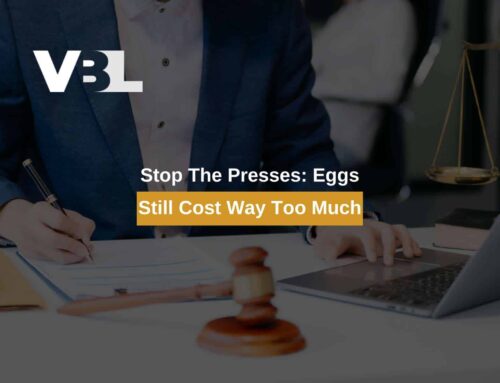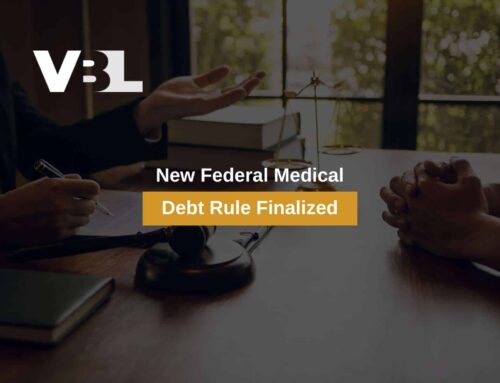Nevada’s Skyrocketing Cost Of Living & Why You Shouldn’t Feel Guilty About Debt & Bankruptcy
Nevada has long been a relatively affordable option for those looking for an area to live that is warm and has great access to entertainment and activities. However, our state hasn’t been spared by record-breaking inflation that has dramatically increased the cost of living in the past few years. Life is getting more expensive at a faster rate, and most families are having trouble keeping up. Whether your car breaks down, you injure yourself, or your roof springs a leak, any type of unexpected emergency could result in unmanageable debt. But people struggling with debt aren’t left without options to protect themselves from creditors. Bankruptcy could be a way to stop collections like a repossession or wage garnishment and start the year fresh with less debt, or even none at all. Start the process with confidence knowing your case has been reviewed by a dedicated Nevada bankruptcy professional. Call 702-370-0155 to schedule your free consultation with our firm today.

Increased Difficulty In Escaping The Rental Cycle
Renting can be great when you’re young and haven’t yet decided where you’d like to call home. At the same time, it can be frustrating to spend a significant portion of your income paying off your landlord’s mortgage. While home ownership can be expensive and comes with considerable responsibilities, a homeowner gains equity in what otherwise would be rent lost to a landlord. But buying a home isn’t as easy as it used to be. This is especially true if a household has to rent while saving up to buy a home rather than living with parents.
The median income for Nevada households from 2017-2021 was $65,686, or $5,474 per month. Someone who earns the median income in Nevada might expect to take home about $4,450 per month. Experts recommend that a household should not spend more than 30% of its gross income on housing. That allows a household earning the median income a housing budget of $1,642 per month. The median cost of a home in Las Vegas is currently around $375,000. This would make a standard mortgage payment of $1,347 per month well within that household’s budget, but that’s assuming they can come up with the 20%, or $75,000, down payment. The median price for a rental in Las Vegas is currently $2,000 per month. That means a household that earns the median income needs to find about $350 extra in their monthly budget just to get by, much less save up for 20% down on a house. If a household doesn’t qualify for FHA loans, VA loans, etc., it will probably take significant help from loved ones to purchase real estate in many parts of Nevada.
Medical Debt – The Number One Reason For Bankruptcy
Medical debt is the leading cause of bankruptcy in the United States. The average cost of a trip to the emergency room in 2020 was $1,385. Serious injuries and medical conditions could cost thousands of dollars more than this, which will be made even worse if the patient has insufficient health insurance or none at all. And these are just unexpected medical expenses- someone with a chronic condition or serious disease could be buried alive by debt while fighting for the chance to live.
In the past, medical bills, especially without insurance contributions, seem outlandish. They still are, but now when we live in a world where you could easily spend $10 on cage-fed non-organic eggs, medical expenses almost seem relatively normal- almost. But one of the negative aspects of medical debt is that it is often accompanied by other financial issues. For example, let’s say a married dad employed in construction breaks his leg. He accrues several thousands of dollars in medical bills. Unfortunately, his doctor orders him to several months of bed rest, and he is unable to work. During that time, the family borrows money from relatives, spends on credit cards, etc., to pay household expenses. If the family doesn’t take action, the debt could eventually have even more drastic negative effects on their life. The dad might fall behind on his car payment and face a vehicle repossession. This will make getting to work, or even completing his job, more difficult once he has healed from his injuries. His credit will be stained, and he could even be left with a repossession deficiency balance. This is the difference between the loan’s balance plus repossession and legal fees minus the amount the vehicle sells for at auction.
Medical debt is unsecured, which makes it easier to discharge in bankruptcy. It is among the debts eligible for discharge in Chapter 7, and is only paid off to the extent that the debtor’s income allows in Chapter 13. However, there are special considerations when discharging medical debt in bankruptcy. Most businesses that provide a service will stop providing that service to a person who discharges their bill in bankruptcy. That means any of your medical providers could fire you as a client if you file bankruptcy without repaying their bill. However, emergency rooms are still required to provide care to people that have filed for bankruptcy. Additionally, most medical providers who have stopped providing care will resume if the debtor pays their balance after the case is complete, despite the legal obligation to do so being discharged.
Credit Card Companies Will Be Fine If You File Bankruptcy
And if not, who cares? Realistically, the amount of households that file bankruptcy on their credit card debts is just a drop in the bucket for major credit card companies. Most credit card companies won’t file an adversary proceeding against a debtor in Chapter 7 or Chapter 13 bankruptcy. One potential issue is if the debtor engages in excessive luxury spending prior to filing bankruptcy. A debtor shouldn’t exceed $1,100 in cash advances in the 70-day period before filing. The debtor also shouldn’t spend more than $800 on luxury purchases in the 90 days before filing. That means that while you can’t max out your credit cards on shopping sprees and fancy restaurants before filing bankruptcy, you can use your credit cards to buy groceries, gas, reasonably necessary shoes and clothing, etc. Another potential issue could be making preferential payments to insiders (rather than paying off all creditors equally) before bankruptcy. Call our firm for your free consultation at 702-370-0155 if you are unsure about whether your purchases qualify as luxuries or preferential payments for bankruptcy purposes.
Affordable, Experienced Bankruptcy Lawyers With Convenient Locations Throughout Nevada
When you file bankruptcy, it’s easier to do so without the stress and inconvenience of case delays, dismissals, trustee investigations, and more. A skilled bankruptcy can keep your case- and your protections from the automatic stay- in good standing with as little effort from you as possible. But many people considering bankruptcy assume they can’t afford representation from a reputable bankruptcy firm. At Las Vegas Bankruptcy Lawyers, our team strives to challenge that preconceived notion by offering competitive payment plans that can begin after your case has been filed. You can take the first step towards debt relief by scheduling your free consultation with an experienced member of our bankruptcy team. Get started and contact us through our online form or call us at 702-370-0155 today.

Las Vegas Bankruptcy Lawyers
LAS VEGAS
7251 W Lake Mead BLVD #300
Las Vegas, NV89128
Office: 702-879-2499
Email: [email protected]
HENDERSON
1489 W Warm Springs Rd. Ste 110
Henderson, NV 89014
Email: [email protected]
Additional Information at:
Phoenix Bankruptcy Lawyer
Phoenix DUI Lawyer
Chandler Bankruptcy Lawyer
Vegas Zero Down Bankruptcy Attorney
Gilbert Bankruptcy Lawyers
Arizona Zero Down DUI
AZ Bankruptcy Lawyer
















